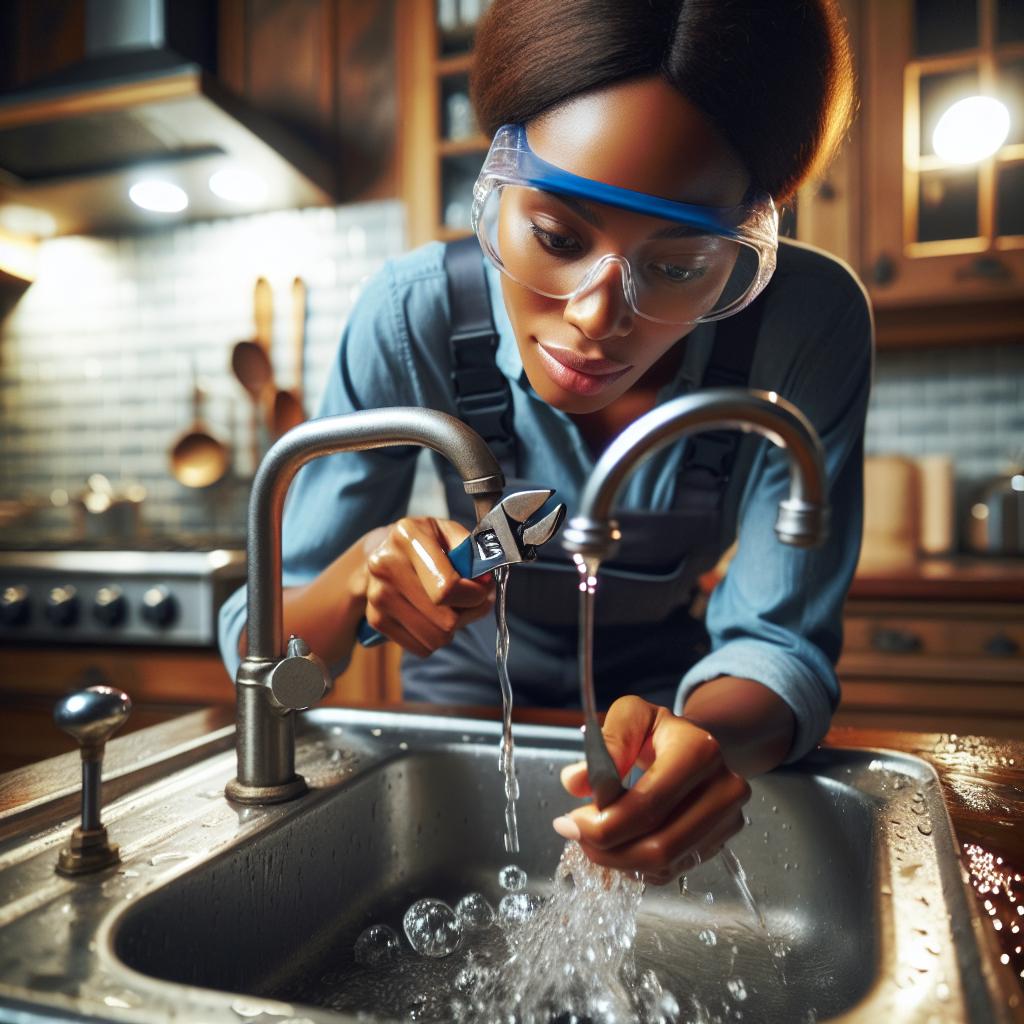Get Ahead of Your Plumb Line: 10 Crucial Tips to Prevent Plumbing Disasters Before They Strike
We all know that an ounce of prevention is worth a pound of cure. But when it comes to home maintenance, nowhere is this adage truer than in your home’s plumbing system. Plumbing disasters are not only inconvenient; they can also be expensive to repair and cause significant damage to your home. But the good news is that most plumbing problems can be prevented with some proactive maintenance and a little bit of knowledge. In this blog, we will discuss 10 crucial tips to help you avoid potential plumbing disasters before they strike.
1. Know Where Your Main Water Shut-off Valve Is
One of the most essential things you need to know as a homeowner is the exact location of your home’s main water shut-off valve. This valve controls the flow of water into your home, and shutting it off can prevent a small leak from becoming a major flood. Make sure to learn how to use it and test it regularly to ensure it’s working properly.
2. Regularly Check for Leaks
Conduct routine checks for leaks throughout your home. Look for moisture on pipes under sinks, and check for puddles around appliances such as the washing machine, dishwasher, and water heater. If you see any indications of water leakage, get it fixed as soon as possible to avoid further damage. Remember, a small leak can quickly turn into a major problem.
3. Watch What You Flush
Your toilet is not a garbage disposal. Avoid flushing anything except toilet paper and waste down the toilet. Items like cotton swabs, dental floss, wet wipes, and feminine hygiene products can clog your pipes and lead to significant issues.
4. Be Cautious with Chemical Drain Cleaners
While chemical drain cleaners might seem like an easy fix to a clogged drain, they can actually do more harm than good. These harsh chemicals can corrode your pipes, leading to leaks or even pipe ruptures. Instead, consider using a plunger or a plumber’s snake to unclog drains, or call a professional if the clog is severe.
5. Prevent Frozen Pipes
If you live in an area where temperature drops below freezing, your pipes could be at risk of freezing. Frozen pipes can burst and cause significant water damage to your home. To prevent this, make sure your pipes are well insulated and keep your home at a warm temperature, even when you’re not at home.
6. Inspect Your Water Heater Regularly
Your water heater is another potential source of plumbing problems. Older water heaters can corrode, leak, or even burst, causing major water damage. Regularly inspect your water heater for signs of corrosion or leaks. Also, it’s recommended to drain and flush your water heater at least once a year to remove sediment buildup.
7. Don’t Ignore Dripping Faucets
A dripping faucet may not seem like a big deal, but it’s actually wasting gallons of water and costing you money. It can also be a sign of a bigger problem in your plumbing system. Don’t ignore a dripping faucet – get it fixed as soon as you notice it.
8. Watch Your Water Pressure
If your water pressure is too high, it can cause stress on your pipes and lead to leaks or pipe bursts. If you notice that your water pressure is excessively high, consider installing a pressure reducing valve to protect your plumbing system.
9. Be Careful What You Put Down Your Sink
Just like your toilet, your sink is not a trash can. Avoid putting things like grease, coffee grounds, or fibrous food down your sink as they can cause stubborn clogs. If you have a garbage disposal, make sure to use it correctly and avoid putting anything in it that it can’t handle.
10. Schedule Routine Plumbing Maintenance
Last but certainly not least, schedule regular plumbing maintenance with a professional plumber. A professional can inspect your entire plumbing system, identify any potential issues, and correct them before they become major problems. While it may cost you a bit upfront, it can save you a lot of money in the long run by avoiding costly repairs.
Conclusion
In conclusion, preventing plumbing disasters is all about staying vigilant and taking a proactive approach to your home’s plumbing system. By following these 10 crucial tips, you can get ahead of your plumb line and keep your home safe from potential plumbing disasters.




